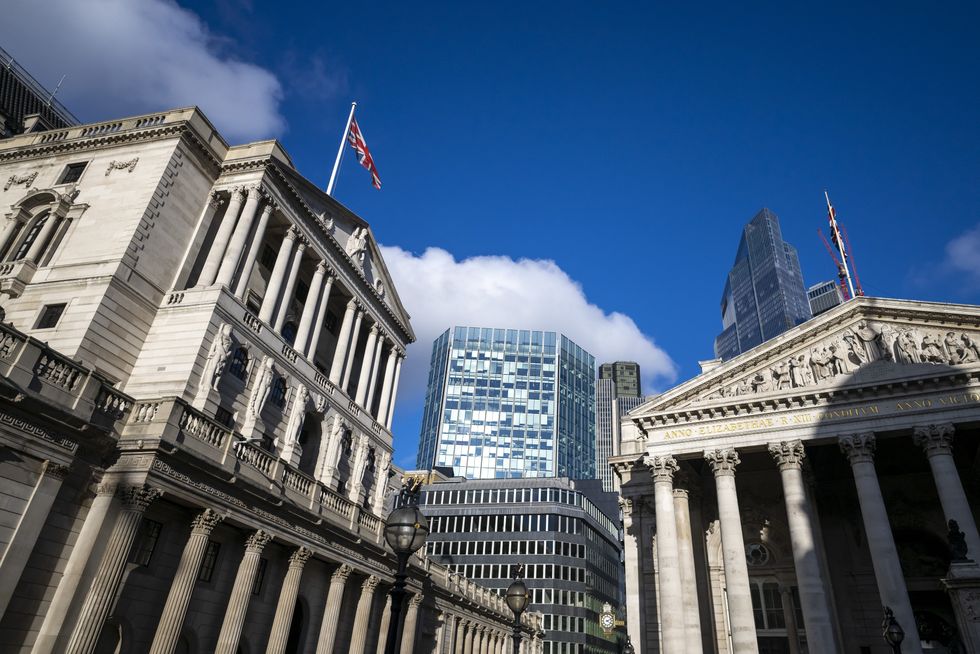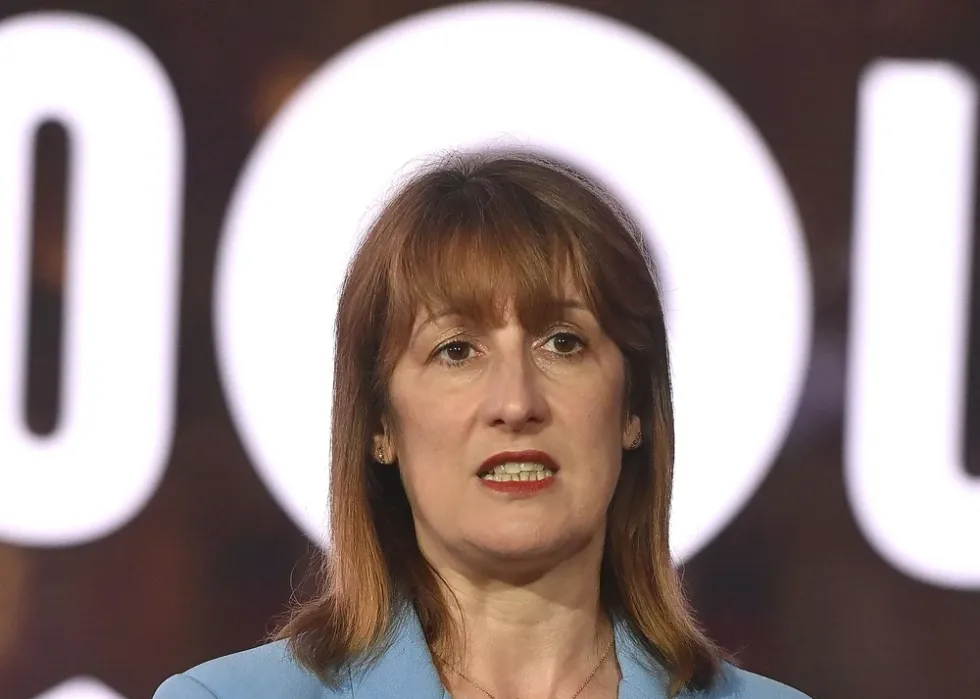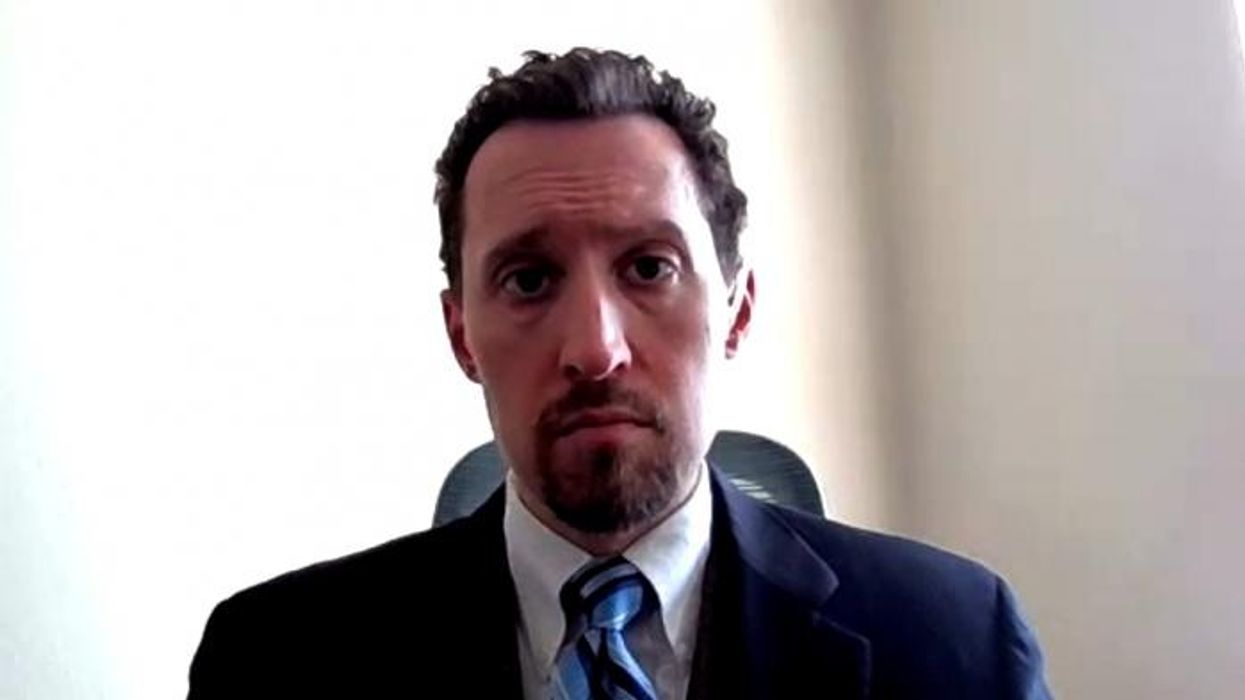Rachel Reeves told to hit banks with 'Thatcher-style' tax raid to raise £8billion a year

Taxpayer-backed windfalls have helped commercial banks’ share prices double since the inflation surge
Don't Miss
Most Read
The Treasury should hit commercial banks with a fresh windfall tax on their profits to raise up to £8billion a year, a think tank has claimed.
The left-leaning policy Institute argues taxpayers are footing a £22billion annual bill to cover Bank of England losses on its money-printing programme, known as quantitative easing (QE).
The Institute for Public Policy Research (IPPR) argues private banks are benefitting and should therefore face a new levy, which could generate between £7billion and £8billion a year for the next four years - a total of 32billion.
They say that private banks are reaping substantial benefits whilst British taxpayers shoulder an annual £22billion burden to cover the Bank of England's quantitative easing programme losses.
The proposed tax would specifically target profits that banks have accumulated through their involvement with Quantitative Easing-related reserves, according to the think tank's analysis.
IPPR's research indicates that since December 2021, major UK banks have witnessed their yearly profits more than double, representing a £22billion increase compared with pre-pandemic levels.
Quantitative easing was a scheme where the Bank of England bought large amounts of government and company bonds after the financial crisis. The goal was to push up bond prices and bring down interest rates.
The Bank bought these bonds mainly from commercial banks, paying with newly created money. In return, the banks earn interest on the reserves they hold with the Bank of England, paid at the base rate.
Now the Bank is losing money on the scheme because it has to sell the bonds for less than it paid for them, while at the same time paying out much higher interest on those reserves.

The Bank is losing money on the scheme because it has to sell the bonds for less than it paid for them
| GETTYUK bank shares have dropped after the think tanks suggestion with NatWest and Lloyds share prices tumbling by more than four per cent. Barclays has been dropping by more than three per cent on Friday morning, leading the biggest fallers on the UK’s FTSE 100.
HSBC and Standard Chartered shares were down by about 1.5 per cent.
The Bank of England is facing a £22billion annual shortfall because the fixed returns on bonds it bought under quantitative easing fall far below the interest it must now pay on commercial bank reserves. Taxpayers are currently covering the gap.
Proposals for a new levy would target the excess profits banks have made from these reserves, while excluding smaller institutions with assets under £25billion.
Analysis shows that the UK’s four biggest banks have more than doubled their annual profits since December 2021, up £22billion compared with pre-pandemic levels. Campaigners argue this surge is partly due to banks failing to pass higher interest rates on to savers.
Carsten Jung, associate director for economic policy, said: "A targeted levy, inspired by Margaret Thatcher’s own approach in the 1980s, would recoup some of these windfalls and put the money to far better use helping people and the economy, not just bank balance sheets."
Research by campaign group Positive Money also suggests that profits at the four largest banks could climb a further 14 per cent in 2025 compared with 2024.

The think tank says the Government should target private banks with a levy, which it says would raise £7bn to £8bn a year
| GETTYIPPR maintains that banks have failed to fully transfer higher interest rates to customers through improved savings rates and other financial products.
IPPR draws parallels to the deposit tax implemented on banks during Margaret Thatcher's government in 1981, positioning the proposal as a precedent-based approach to addressing current fiscal challenges.
Several economists have raised concerns about potential negative effects of implementing such a levy. Chris Martin, an economics professor at the University of Bath, pointed to varied outcomes from similar taxes in European countries.
Martin noted: "Various countries have introduced windfall taxes on banks in recent years, including Spain, Italy, Hungary and the Czech Republic.
"The results have been mixed, with the revenue raised relatively low and evidence of a reduction in the amount lent by, and an increase in the interest rate paid on) banks to households and firms, and of the interest rate. Any proposal in the UK ought to be based on a careful review of these experiences."

The Bank of England transferred over £120billion to the Treasury during the period of low interest rates
| GETTYMr Martin noted that whilst Britain's practice of compensating the Bank of England for QE losses differs from international norms, the arrangement has operated reciprocally. The Bank of England transferred over £120billion to the Treasury during the period of low interest rates.
The banking sector already contributes nearly £45bn annually in tax revenues, according to UK Finance, the industry's representative body. Financial institutions currently pay both a corporation tax surcharge and an existing bank levy.
"Adding another tax would make the UK less internationally competitive and run counter to the Government's aim of supporting the financial services sector to help drive growth and investment in the wider economy," a UK Finance spokesperson stated.
HM Treasury declined to comment on potential policies outside scheduled fiscal announcements. A Bank of England spokesperson emphasised that taxation and spending matters fall under government jurisdiction rather than the central bank's remit.
"We remain 100 per cent focused on making sure that inflation returns all the way to the two per cent target, because low and stable inflation is the foundation of a healthy economy," the spokesperson added.











